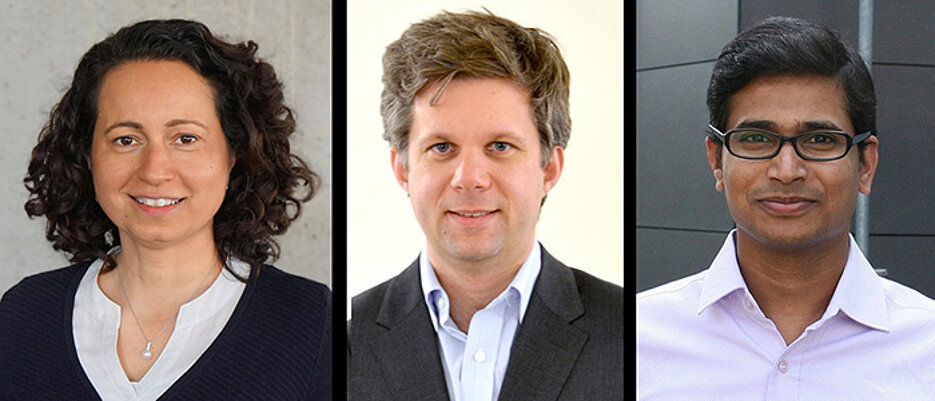Three ERC Grants for the University of Würzburg
03/17/2022Infection biologist Cynthia Sharma, virologist Lars Dölken and chemist Prince Ravat win substantial funding for their research – ERC grants worth a total of 5.5 million euros.

Three researchers from the University of Würzburg have secured prestigious European Research Council (ERC) grants: Prof. Cynthia Sharma (Infection Biology) and Prof. Lars Dölken (Virology) each have been recognised with a Consolidator Grant worth two million euros. Chemist Dr. Prince Ravat has received a Starting Grant worth 1.5 million euros.
The ERC announced the winners of the Consolidator Grants on 17 March 2022. Those grants are designed to support research talent whose track record demonstrates the potential for more top research. The ERC received 2,652 applications in this round of awards; twelve percent of the proposals were approved.
RNA-binding proteins in bacteria
Cynthia Sharma, head of the Chair of Molecular Infection Biology II and spokesperson for the Research Centre for Infectious Diseases, is investigating how bacterial pathogens adapt to their environment or host. In her project Exploring the expanding universe of RNA-binding proteins in bacteria, she is focusing on proteins that bind RNA molecules and play crucial roles in cell physiology. So far, little is known about such RNA-binding proteins in bacteria. Sharma’s work is intended to help us to better understand the gene regulation mechanisms of bacteria. This in turn could provide new targets for antibiotics or contribute to the development of new biotechnological processes. More ...
Herpes viruses and their host cells
Lars Dölken, head of the Chair of Virology and already a winner of a Consolidator Grant in the 2016 round of awards, has now received his second Consolidator Grant from the ERC. He will use the funds from the grant to continue his research on the herpes simplex virus-1 in the context of the DecipherHSV project. This pathogen is responsible for relatively harmless symptoms such as itchy cold sores. However, it can also trigger dangerous infections of the lung or brain. Many of the mechanisms by which the virus manipulates its host are still not understood well enough. The ERC-funded project uses a novel approach to single-cell RNA sequencing to collect data that will then be analysed using artificial intelligence methods. More
A new class of chiral semiconductors
ERC Starting Grants are designed to support outstanding early-career researchers. The winners of Starting Grants are announced throughout the year, not on one particular date. The final list with the current statistics is not available yet.
Prince Ravat has been a research group leader at the Institute of Organic Chemistry since 2018. He wants to use the funds from his ERC Starting Grant for a project that deals with the development of a new class of chiral semiconductors. Chirality describes a property of molecules that is related to their symmetry. Chiral organic semiconductors are needed as novel materials to drive the development of next-generation (opto)electronics, such as spin LEDs, 3D displays and quantum-based optical computing. More
About the ERC
The European Research Council was founded by the European Union in 2007. It is Europe’s premier funding organisation for research. Its total budget for the period from 2021 to 2027 is 16 billion euros.






